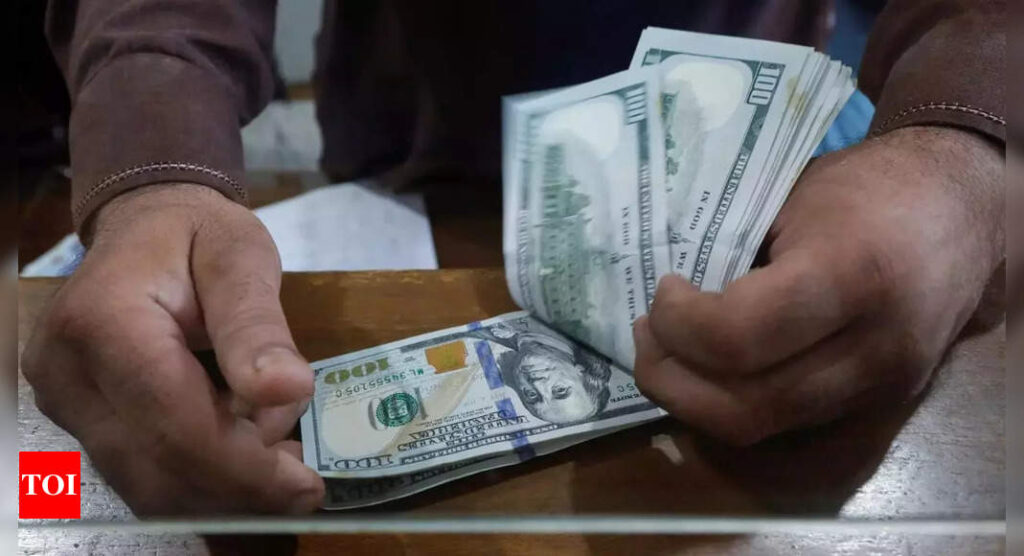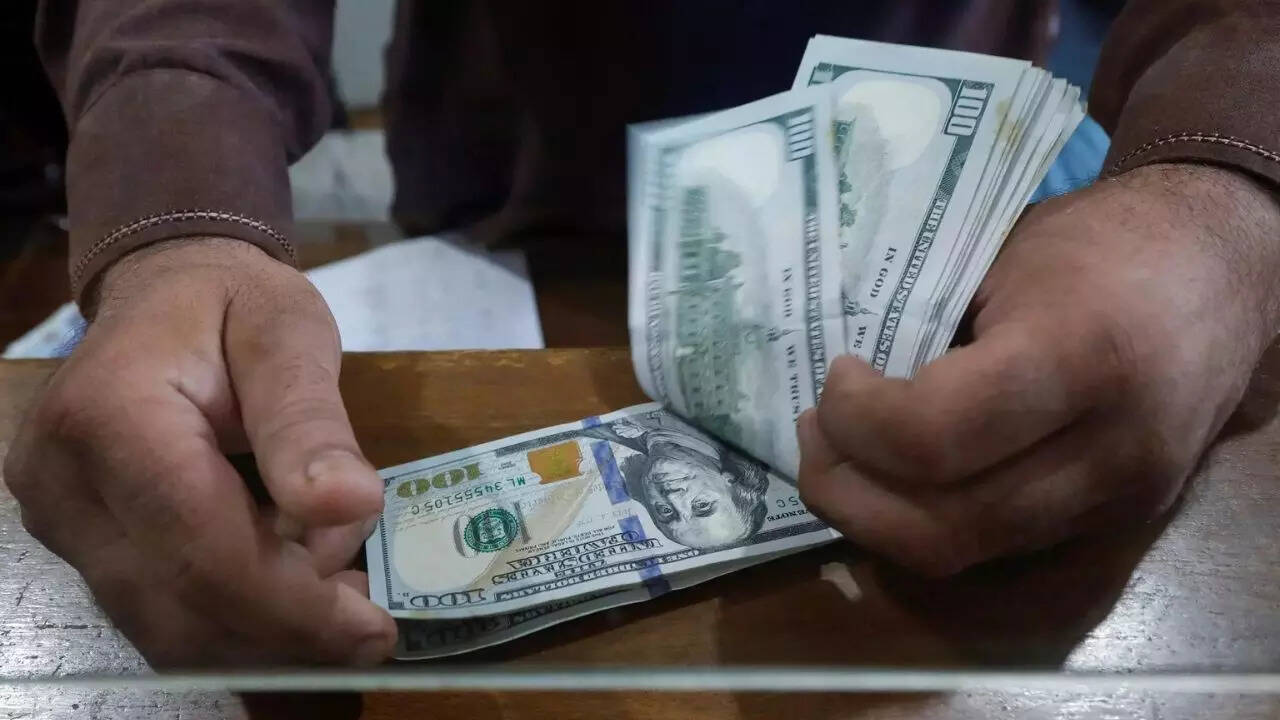[ad_1]
ISLAMABAD: Illegal activities such as black market currency trade, gold smuggling, and oil smuggling among others are costing Pakistan‘s economy a whopping USD 23 billion per year, according to a UK-based financial service company. ACE Money Transfer, the UK-based money transfer company, in its recent report said that the black market and smuggling of US dollars in key sectors are draining Pakistan’s economy of a staggering USD 23 billion per year, The Express Tribune newspaper reported on Saturday.
These clandestine operations, encompassing black market currency trade, oil smuggling, gold smuggling, and import controls, have detrimental effects on Pakistan’s economic stability, it said.
They distort exchange rates, leading to currency devaluation, which, in turn, can fuel inflation as imported goods become costlier.
Moreover, such activities undermine the efficacy of monetary policies and erode confidence in the financial system.
“This not only leads to a loss of government revenue but also fuels a shadow economy, making it harder to track and regulate economic activities,” the report said.
In recent years, Pakistan has experienced significant fluctuations in its exchange rates, intensifying its economic challenges.
A robust crackdown on these illicit activities has somewhat stabilised the interbank rate at Rs 282.62 per dollar.
Experts underscore that a steadfast commitment to eradicating smuggling in key sectors is essential for Pakistan’s economic recovery.
“The most important part is governance, if governance is improved, it will lead to an overall improvement in the financial and economic environment and bring stability to our financial markets and help economic and financial growth of the country,” said the ACE group of companies, Chief Executive Officer Rashid Ashraf.
Speaking to the Express Tribune, Ashraf stressed the need for advanced surveillance techniques and technologies to secure Pakistan’s physical borders and crossing points.
“We have a long border sharing with Iran and Afghanistan and then a sea border with Gulf countries. The smuggling of physical dollars and oil must be effectively controlled to prevent the outflow of foreign currencies,” Ashraf said.
According to the report, Pakistan loses around USD 150 million per month on account of dollar smuggling, culminating in an alarming annual figure of around USD 2 billion per year.
Similarly, the report suggested that smuggled Iranian oil now commands a significant share estimated at over 30 per cent of Pakistan’s diesel market.
Around 10 million litres of diesel and two million litres of petrol are smuggled every day into Pakistan from Iran. This smuggled diesel eventually cost the government over USD 1 billion annually.
Officially, the government has placed a ban on importing Iranian fuel products since 2013.
However, the government machinery turns a blind eye to smuggling across land borders because of the huge profits earned by involved parties.
Gold smuggling poses another challenge. The report revealed that out of the significant gold market value of Rs 2.2 trillion (USD 7.1 billion), only 1.32 per cent or Rs 29 billion (USD 94.5 million) is officially declared to tax authorities.
This stark underreporting results from an annual smuggling of approximately 80 tonnes of gold into the country out of the total annual consumption of 160 tonnes.
With regularisation, this market could contribute a minimum of USD 500 million annually to government revenues.
The report also highlighted the unintended consequences of import bans, despite their well-intentioned implementation.
These bans have given rise to a shadow economy, with smuggling, misreporting, and product substitution becoming common methods to bypass import restrictions.
This has disrupted economic activity on a large scale and has the potential to increase unemployment figures significantly, with projections exceeding 2 million people by the end of 2023.
These clandestine operations, encompassing black market currency trade, oil smuggling, gold smuggling, and import controls, have detrimental effects on Pakistan’s economic stability, it said.
They distort exchange rates, leading to currency devaluation, which, in turn, can fuel inflation as imported goods become costlier.
Moreover, such activities undermine the efficacy of monetary policies and erode confidence in the financial system.
“This not only leads to a loss of government revenue but also fuels a shadow economy, making it harder to track and regulate economic activities,” the report said.
In recent years, Pakistan has experienced significant fluctuations in its exchange rates, intensifying its economic challenges.
A robust crackdown on these illicit activities has somewhat stabilised the interbank rate at Rs 282.62 per dollar.
Experts underscore that a steadfast commitment to eradicating smuggling in key sectors is essential for Pakistan’s economic recovery.
“The most important part is governance, if governance is improved, it will lead to an overall improvement in the financial and economic environment and bring stability to our financial markets and help economic and financial growth of the country,” said the ACE group of companies, Chief Executive Officer Rashid Ashraf.
Speaking to the Express Tribune, Ashraf stressed the need for advanced surveillance techniques and technologies to secure Pakistan’s physical borders and crossing points.
“We have a long border sharing with Iran and Afghanistan and then a sea border with Gulf countries. The smuggling of physical dollars and oil must be effectively controlled to prevent the outflow of foreign currencies,” Ashraf said.
According to the report, Pakistan loses around USD 150 million per month on account of dollar smuggling, culminating in an alarming annual figure of around USD 2 billion per year.
Similarly, the report suggested that smuggled Iranian oil now commands a significant share estimated at over 30 per cent of Pakistan’s diesel market.
Around 10 million litres of diesel and two million litres of petrol are smuggled every day into Pakistan from Iran. This smuggled diesel eventually cost the government over USD 1 billion annually.
Officially, the government has placed a ban on importing Iranian fuel products since 2013.
However, the government machinery turns a blind eye to smuggling across land borders because of the huge profits earned by involved parties.
Gold smuggling poses another challenge. The report revealed that out of the significant gold market value of Rs 2.2 trillion (USD 7.1 billion), only 1.32 per cent or Rs 29 billion (USD 94.5 million) is officially declared to tax authorities.
This stark underreporting results from an annual smuggling of approximately 80 tonnes of gold into the country out of the total annual consumption of 160 tonnes.
With regularisation, this market could contribute a minimum of USD 500 million annually to government revenues.
The report also highlighted the unintended consequences of import bans, despite their well-intentioned implementation.
These bans have given rise to a shadow economy, with smuggling, misreporting, and product substitution becoming common methods to bypass import restrictions.
This has disrupted economic activity on a large scale and has the potential to increase unemployment figures significantly, with projections exceeding 2 million people by the end of 2023.
[ad_2]
Source link











More Stories
India’S Growth Forecast: S&P ups India’s FY’24 growth forecast to 6.4% on robust domestic momentum
India to remain fastest-growing major economy, but demand uneven: Poll
Jack Ma: Jack Ma gets back into business with ‘Ma’s Kitchen Food’